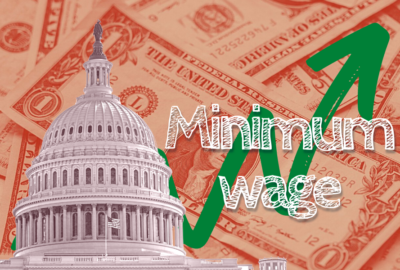 Exclusive
Exclusive Six weeks in, and salary is the hottest issue for 2022
Inflation, which is a new thing for younger feds, will heat up the debate over federal pay, pay parity and pay raises.
Unless you’re Jed Clampett, a lottery winner, or have a rare gift for investment, you’ve probably had to spend a career building up that nest egg.
Jed Clampett, the legendary Beverly Hillbillies TV sitcom character of the 1960s, cashed in on the accidental discovery of oil on his land, but never was motivated purely by money.
The reason most people have to work so long is they must save part of their salary and hope what they accumulate catches the law of compound interest.
I bring up this rather obvious point because many people, especially employees under the age of 45 or so, are experiencing a phenomenon that’s new to them: inflation. Yesterday’s inflation numbers from the Bureau of Labor Statistics showed a January inflation rate of 7.5%. That brought back bad memories for those who remember the “stagflation” days of the 1970s. It brought perhaps a little shock and awe to those for whom the last several decades have brought ever-lower real prices for many things people need to live.
So today, some thoughts on pay. Specifically, federal salaries, which exist in the real world of a now-inflationary economy and competition with the private sector.
Federal News Network’s Jason Miller last week reported that the Biden administration would ask for a 4.6% federal pay raise for 2023. This gambit came from the so-called passbacks, the reworked versions of agency budget requests that the Office of Management and Budget sends back to agencies before recompiling it all into the governmentwide request the White House sends to Congress.
It sounds like a high percentage relative to what federal employees have been ordinarily getting year to year for a long time. One survey recently said that in the tech sector, average pay would rise 3% next year.
But that needs context. Amazon this week said it would double its “maximum base pay” to $350,000 for corporate and technology employees. That’s not the same as paying everyone a minimum of $350K, but instead looks like a move to give hiring managers a lot more recruitment leeway. Government, also needing technology and managerial talent, doesn’t nearly have that much leeway. Of course, the more one is paid, the more dollars 3% translates into.
The average management or highly experienced cat in federal service would be among the privileged to receive pay at the previous paltry maximum base pay at Amazon, which had been $160,000.
I’m expecting renewed calls — from certain members of Congress, from perhaps the federal employee unions, and from some of the associations — for a comprehensive look at federal salaries. One result might be more special classes of employees eligible for private market rates. Cybersecurity experts, for example. This isn’t an unknown phenom. For instance, the Title 38 class in Veterans Affairs allows some salaries for medical professionals twice what is available to the highest GS-15 manager.
Corporate flexibility also extends to the low pay levels. Continuing with the Amazon example, the company is among several that have pledged to pay no one less than $15 an hour. If that translates to about $30,000 a year, it’s notable that, until just a few weeks ago, GS-1 through GS-4 federal employees could make less than $15 an hour. Now the federal government has made $15 the floor.
In reality, most people are motivated by two factors. They want fulfilling work. And they want to live close to some facsimile of the life they envisioned for themselves. Incremental pay raises — if they keep up with inflation — are no match for voting with your feet if a better offer comes around. Many, many years ago, my mother-in-law was over, helping unpack boxes and putting things in the kitchen cabinets of the house my new wife and I had just bought. Meanwhile I was in another state getting a job offer from a competing company. I stayed, but I ended up with half-again more salary and a company car.
This was during the height of inflation, and we’d been thrilled to get a mortgage rate of 11.5%.
Still, I’ve interviewed many, many feds who’ve put in long careers. Some have had many jobs, but essentially one employer and one reliable but unexciting pay system. They’ve loved their work and done it proudly, but public services doesn’t mean working for bupkis.
So here’s a question, two questions really: What’s your reaction to our little burst of inflation, and how are you coping? And should something like a 4.6 percent raise come along — and they would nearly a year from now — what would it mean to you?
Nearly Useless Factoid
Source: CNET
Copyright © 2024 Federal News Network. All rights reserved. This website is not intended for users located within the European Economic Area.
Tom Temin is host of the Federal Drive and has been providing insight on federal technology and management issues for more than 30 years.
Follow @tteminWFED
Related Stories





